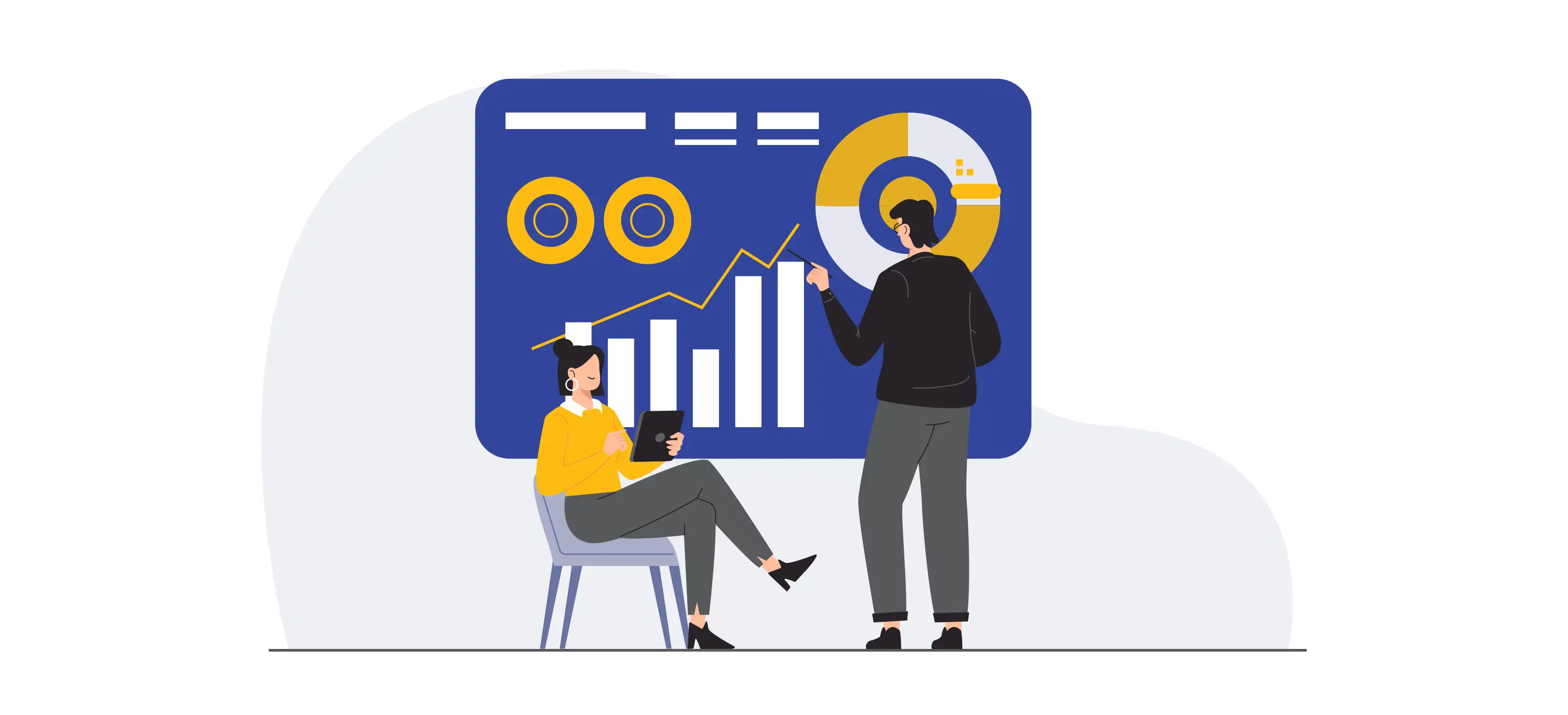 Maria Mehwish
May 06, 2025
Maria Mehwish
May 06, 2025

Blockchain feels like something out of a sci-fi movie, but it’s an incredible piece of technology that’s reshaping how we think about trust and transparency in our digital world.
“Blockchain is a decentralized and distributed ledger system that offers secure and transparent record-keeping. “
You can think of it as a digital notebook where each transaction is recorded in a "block." When a block is full, it links to the previous blocks, forming a chain—hence the term "blockchain” formed.
This clever structure makes it tough for anyone to tamper with the data, making it a top choice for businesses looking to beef up their security and streamline their operations.
Initially popularized by cryptocurrencies like Bitcoin, blockchain has blossomed into a transformative technology impacting various industries—from finance and supply chain management to healthcare and tech.
More and more companies are finding innovative ways to harness blockchain’s capabilities to improve processes and build trust with their stakeholders.
Blockchain isn’t just another tech trend; its unique features set it apart from traditional record-keeping systems. Understanding these aspects can help you see the true potential of blockchain for organizations and individuals alike.
The perks of using blockchain go way beyond its unique features. Here are some practical advantages that can redefine how businesses operate.
Different industries are finding tailored applications for blockchain, enhancing operations and driving innovation. Here’s how some sectors are making the most of this technology:
Supply Chain and Food Industry
Blockchain fosters trust among supply chain partners by providing end-to-end visibility. It enhances traceability, enabling companies to quickly locate sources of contamination. For example, Walmart has implemented blockchain to trace the origin of produce in seconds, helping to minimize food safety risks and reduce waste. According to IBM, this application can cut down the time it takes to trace food shipments from days to just seconds.
Banking and Finance
The banking sector is moving away from outdated paper-based processes toward blockchain-based systems that streamline transactions. This shift not only improves efficiency but also significantly reduces operational costs. A report by PwC estimates that blockchain technology could save banks up to $15 billion annually by enhancing transaction processing and reducing fraud.
Healthcare
Blockchain ensures the security of patient data while allowing authorized access for healthcare providers. This technology boosts collaboration and trust among providers, which is particularly crucial in managing patient information.
For instance, The UAE Ministry of Health and Preventio has partnered with various organizations to implement blockchain solutions for securing health records. The “Blockchain for Health Data” initiative aims to integrate health services on a shared blockchain platform, increasing patient data security and accessibility. In 2023, the initiative expanded to cover over 6 million patients, providing secure access to their medical histories.
Pharmaceuticals
In the pharmaceutical sector, blockchain enables seamless tracking of products through the supply chain, combating counterfeiting effectively. This capability is vital for quickly locating recalled items and ensuring product authenticity. Companies like Modum are using blockchain to monitor the temperature and conditions of medications in real-time, which is critical for maintaining their integrity.
Government
Blockchain facilitates secure data sharing between government agencies and the public, enhancing transparency and trust through immutable audit trails. For example, the Dubai Blockchain Strategy, launched in 2016 aimed at making Dubai the first city fully powered by blockchain by 2020. By 2023, over 50 government services transitioned to blockchain, enhancing efficiency and transparency in public dealings.
Insurance
Smart contracts in insurance streamline processes such as underwriting and claims, leading to significant reductions in costs and processing times. According to a report from Accenture, the insurance industry can save about $25 billion to $35 billion through automation and enhanced operational efficiency provided by blockchain technologies.
Blockchain is not just a buzzword; it’s being applied in real-world scenarios to tackle today’s challenges. Here are some notable examples:
Blockchain technology is still in its early stages, bursting with potential for innovation across diverse fields. As businesses increasingly tap into this powerful tool, its ability to strengthen data security, transparency, and integrity will play a pivotal role in shaping our digital future. So, whether you're a business leader, a tech enthusiast, or just curious about the next big thing, blockchain is definitely worth keeping an eye on!
Here is the list of other major locations where Edoxi offers BlockChain Course
Blockchain Course in Dubai | Blockchain Course in Qatar |

Leading Cybersecurity & Cloud Security Trainer
Maria Mehwish is a forward-thinking and knowledgeable information security leader with a strong background in building, updating, and maintaining digital protections for various organisations. As a certified CEH, CCSP, CCT, and CISSP Trainer, Maria has a proven track record of delivering innovative and immersive coursework, enhancing learning experiences for cyber threats, ethical hacking, security policy, DevSecOps, and cloud security. With excellent verbal and written communication skills, she is also adept at troubleshooting problems and building successful solutions.
Maria is a self-motivated individual with a strong sense of personal responsibility, capable of managing projects from start to finish. Her expertise in Amazon Web Services, Java/Go/Python/C++, DevSecOps, computer security, Linux, penetration testing, and risk analysis, among others, makes her a valuable asset to any organisation. Maria, a British national, is a native English speaker and has intermediate proficiency in Urdu.